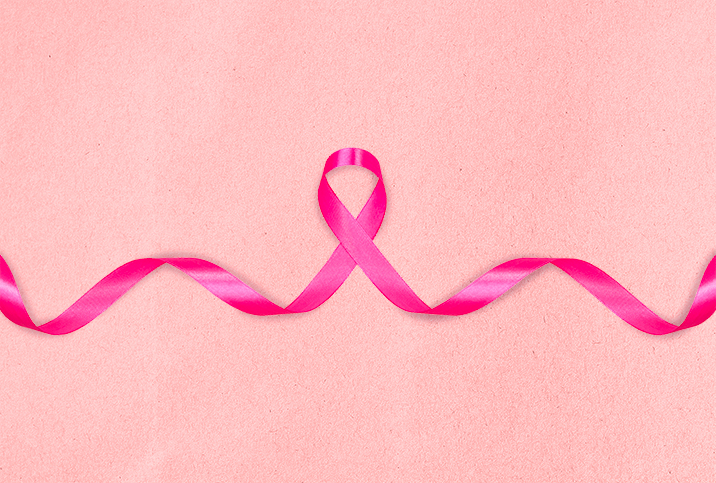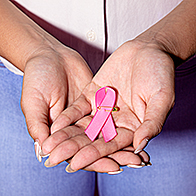Raising Awareness: Living Beyond Breast Cancer Serves 600K Survivors

In 2021, the World Health Organization reported breast cancer is now the most common cancer in the world, overtaking lung cancer as the most diagnosed globally and accounting for 12 percent of all new cancer cases.
About 1 in 8 women (and 1 in 833 men) will be diagnosed with the disease, and it is estimated about 43,600 women and 530 men will die from breast cancer this year.
According to a 2017 study by the National Cancer Institute, the number of women living with stage IV, or metastatic, breast cancer (MBC) is growing. MBC is a progressive cancer that originates in the breast but then spreads to other parts of the body. There is no cure for metastatic breast cancer, though it is treatable. It is estimated that more than 150,000 Americans are currently living with MBC.
The national nonprofit organization Living Beyond Breast Cancer (LBBC) provides resources and a community of support for people with breast cancer and metastatic breast cancer, with approximately 50 percent of their programming tailored to those with MBC.
In this exclusive Q&A with Giddy for Breast Cancer Awareness Month, Janine Guglielmino, vice president of Mission Delivery for LBBC, discusses the common misconceptions the general public has about breast cancer, how to best support a loved one with the disease, and the many initiatives, educational programs and robust communities LBBC has created to support those living with breast cancer.
Tell us a bit about the Living Beyond Breast Cancer organization.
Living Beyond Breast Cancer is celebrating its 30th anniversary this year, so we've been around for a while. Our mission is to connect people with trusted breast cancer information and a community of support. That's how we try to implement the vision that we have, which is a world where no one impacted by breast cancer feels uninformed or alone.
Everything that we do is really to provide information and connection to people after the point of diagnosis, through their treatment and beyond, with a special focus on our metastatic community, who are in ongoing treatment.
We offer a broad array of programs, services, community and content in support of our mission. We serve about 600,000 people across the country and around the world. We primarily target and focus on people in the United States, but because of the pandemic, we have really begun to serve people all over the world.
What inspires you most about your job? What are some of the challenges?
What inspires me the most on a day-to-day basis are the relationships I have with members of our breast cancer community, witnessing their resilience, their ability to face this life-changing diagnosis, and still find ways to connect, to give back, and to forge their lives ahead when they're dealing with something that a lot of people just don't understand.
There are a lot of misunderstandings, despite all the conversation about breast cancer and the awareness of the disease. I am inspired by people's ability to move their lives ahead, to try and educate the public about what it's really like living with breast cancer and metastatic breast cancer, and to move their lives forward after this diagnosis, because it really is life-altering.
What are some of the biggest misconceptions you see happening?
There are a few. I would say the two biggest are that breast cancer is not life-threatening, and that it's an easy disease and is not a big deal.
Breast cancer takes the lives of 680,000 people each year around the world and 44,000 Americans. It is traumatizing, it requires a variety of treatments that change your life—your physical life, your emotional life, your practical life—it's a big deal. It's not an easy disease. So, that is a misconception I would love to see change.
I think another big misconception is that once the treatment is over, the trauma of the diagnosis is over. But the reality is that many, many people live a long time with the impacts of breast cancer treatments. These include the physical impacts, with ongoing side effects to their sexual health and their physical health (such as their bone health), and the emotional impacts of having been through this experience and other people not understanding it. And for many people, there are financial impacts that follow them throughout their lives.
Those are the two biggest misconceptions I would love to help support people in understanding better.
In 2011, LBBC launched its Leadership Volunteer Programs, and to date has trained more than 500 volunteers. Tell us more about this initiative.
We have three groups of leadership volunteers. In 2011, we launched our Young Advocate Program, which is training for women diagnosed with breast cancer before the age of 45. And then in 2015, we launched our Hear My Voice Advocacy Program, which trains people of all ages who have stage IV breast cancer. Those two programs focus on advocating for the specific concerns of people facing those situations.
In addition to that, our first leadership volunteer program was launched in 1996, and that's our Breast Cancer Helpline. Those volunteers connect with other people with breast cancer to provide one-on-one peer support.
The goals of those programs are to both provide opportunities for people to give back to the community and to provide opportunities for connection among different members of our community, to forge understanding and support.
So far, we've trained people in 48 of the 50 states. Our leadership volunteers are really our boots on the ground and are the people who are able to reach out to their local communities and create meaningful connections. Not too many people are meeting in person right now, obviously, because of COVID.
LBBC also has a "train the trainer" program for oncology nurse navigators. What is the goal of this program?
We have this program once a year through a grant we receive from the Centers for Disease Control and Prevention to serve young women. The program provides oncology nurse navigators with tools to help young breast cancer patients after a diagnosis of breast cancer.
Our goals for that program are to help these healthcare professionals build up their programming within their institutions to support young women with breast cancer. So, we explore issues that are of great concern to young women, such as sexuality, genetic testing, anxiety and depression, and other issues that our research has shown are of deep importance to premenopausal women diagnosed with breast cancer.
We give these healthcare professionals tools so they can implement the program themselves. So far, we've held the program three times and trained 56 oncology nurse navigators through our Survivorship Series. These program leaders come from more than 50 institutions across the country. We're excited to train our next group in 2022.
One of LBBC's goals is to support the emotional health of people with breast cancer. How is this accomplished?
We have a variety of programs that help support people's emotional health. In addition to the helpline mentioned above, we also offer private closed Facebook groups for people of all ages and all stages of breast cancer, and that's a great place for people to connect.
We also offer a lot of online content about emotional health and we're growing that out. We have videos, text-based content, and our blog, which is very, very popular. The blog shares the experiences of people with breast cancer, how they got help for emotional concerns and how they connected with other people to address their emotional concerns.
We have some posts that are professionally written and some that are written by the women themselves, and we also have video blogs where people share their perspectives. We try to bring all those perspectives and all those voices into our community.
Our programs are also a great place to connect. This month, we're kicking off a three-part webinar series called Knowledge Is Power that runs into November. It focuses on disparities in breast cancer care for Black women, and seeks to provide emotional support to those who bear a disproportionate burden of this disease. It's always amazing to see how people connect with one another, whether the program is virtual or in-person.
Since 2006, LBBC has awarded more than 2,700 grants and distributed more than $2,230,000 to women undergoing treatment, which can be used for living expenses, such as mortgage, rent, utilities and car payments. Tell us more about the Living Beyond Breast Cancer Fund. Who is eligible and how does it work? How is it funded?
The LBBC Fund grants are open to people who are in active treatment for breast cancer, either early-stage or metastatic breast cancer. We define "active treatment" for early-stage breast cancer as essentially anything other than ongoing anti-estrogen therapy, so it's for people who are getting their active initial treatment with breast cancer surgery, chemotherapy or targeted therapy, and then it's also open to people in ongoing treatment for metastatic breast cancer.
To be eligible, your family has to have a household income under 400 percent of the federal poverty level. We have a tool on our website where people can look up to see if they're eligible. They have to live within the 50 states or in the District of Columbia.
In terms of the process itself, the person with breast cancer fills out an application, and one of their healthcare providers has to fill out part of the application as well. It's all online, it's pretty straightforward, but it's important that the healthcare provider support the application.
If you're approved, the grants are between $500 and $1,000, and they're paid directly to creditors or vendors. So, we directly pay your mortgage lender or your electric bill, or whatever. We don't pay directly to the person themselves, so they don't have to deal with all of those pieces.
The LBBC grants are funded by a combination of foundations, corporations, nonprofit organizations, and individual donations. We accept donations and are happy to talk with institutions that are interested in supporting the fund.
LBBC is a founding member of the Metastatic Breast Cancer Alliance. Once breast cancer reaches a metastatic stage, what are some of the unique challenges patients face? What additional support does LBBC provide for them?
We have a long history of serving people with metastatic breast cancer and we have always had programs about metastatic breast cancer. But in 2005, we conducted a needs assessment that was one of the first needs assessments ever conducted on the needs of people with metastatic breast cancer. From that assessment, we found that this community really wanted some safe places where they could connect with one another and get information that was very specific to their stage of breast cancer.
From that research, we developed an annual conference on metastatic breast cancer, which we've been doing for 15 years—it'll be 16 years in 2022. We also developed an extensive amount of content on LBBC.org and throughout all of our other programming. So, for example, we have a guide for the newly diagnosed for people with metastatic breast cancer and we offer the Hear My Voice Program.
During Breast Cancer Awareness Month, we try to amplify the voices of people with metastatic breast cancer through social media campaigns. We just had one on October 13 for Metastatic Breast Cancer Awareness Day. It's called #4forStageIV.
When we joined the Metastatic Breast Cancer Alliance, at its founding in 2014, we estimated that about 40 percent of all our programming focuses on metastatic breast cancer. Today, it is probably closer to 50 percent.
'We found that this community really wanted some safe places where they could connect with one another and get information that was very specific to their stage of breast cancer.'
In terms of the information and support that people with stage IV breast cancer need, what they tell us is they want information that's specific to their diagnosis: specific to the experience of being in ongoing medical treatment for breast cancer—the impact of that on them physically, emotionally, practically.
This includes partnering with them to help the public understand who has metastatic breast cancer, how many people have it, what their experience is like and how isolating it can be to be asked questions like, "When is your treatment going to be over?" or "Do you really have breast cancer, because you look so healthy?"
Those are the types of things we try to partner with them on to make people more aware of the diversity of the experience of breast cancer, and that there's more than one way to have breast cancer.
October is Breast Cancer Awareness Month. What are some of the events and goals LBBC accomplished this month, and what are the organization's plans moving into next year?
October is a crazy month for us. During this month we have four goals:
Our main goal, in general, is educating the public, helping them to understand there isn't just one type of person or one way to have breast cancer. We really want the general public to understand the diversity of experiences of people with breast cancer. We want to help people learn by sharing stories. That is a core goal we have throughout the year.
Another goal we have is to help people share their stories, to give them a space where they can feel comfortable talking about the realities of breast cancer—good, bad, ugly—they're all there.
A third goal, obviously, is to encourage people to support Living Beyond Breast Cancer with direct donations, which we always appreciate and which supports all of our programming.
Lastly, during Breast Cancer Awareness Month, we have a variety of partners who are selling products on our behalf. We choose these partners carefully and then share that information out with our community, and we have some really cool ones this month.
Moving into 2022, we've got a lot planned. We're planning the upcoming relaunch of our website, we're going to continue to grow and provide online content for the community, and we'll be offering our trainings again and our educational programming. We just had an "Ask the Expert," and we offer three of those a year on different types of breast cancer and provide the latest medical information.
We have a lot happening in 2022, and we're excited about it.
The LBBC website offers lots of information for women diagnosed with breast cancer. What advice would you offer to the loved ones supporting a breast cancer patient?
This is such a hard question because it's so individualized. The advice I typically give to other people is to listen. And to be able to listen with an open mind and an open heart to what the person you're caring for needs because it might not be what you expect. To just be present for people at the time when they need it.
Sometimes, the most powerful thing a caregiver can do is stop everything and listen. I think our inclination as caregivers—because I'm a caregiver and not a person who's had breast cancer—is to do something. What can I do? And sometimes that doing is just being still and listening—and that is really hard.
The other advice I have for caregivers who are involved in the day-to-day caring of someone with breast cancer is to take time for yourself. To remember that your physical and emotional health is really important for you to be able to care for the person you're caring for.
And, actually, one of the things we're working on right now at LBBC is developing more resources for caregivers, focusing on this aspect of "How can you care for yourself?" because there's so much to do when you're supporting someone with breast cancer. We want to make sure caregivers are also taking care of themselves, whether they're nonprofessional caregivers or professional caregivers.
Do you have any final thoughts you'd like to share with our readers?
The one piece of advice I can think of, which is really more directed to the general public, is to ask questions of people about what they need. Just because someone looks happy and healthy on the outside doesn't mean that's how they're feeling on the inside.
With the experience of breast cancer, this can really be true because breast cancer looks much different today than it did even 20 years ago. A lot of people don't lose their hair. A lot of people take medications that have silent impacts on their lives, but you wouldn't be able to tell from looking at them that they may be encountering some real struggles, physically and emotionally.
So, if you know someone who has breast cancer, and you care for them, ask them how they're doing, even after the treatment is over. Just ask them how they're doing. In simply asking that question, you can have an effect on helping them feel seen and heard.




















